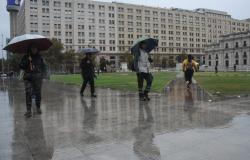On International Book Day, the Javeriana University launched a report in which it analyzes the reading rates of students, both children and high school graduates. There it is revealed that the percentage of 11th grade students who dedicate significant time to reading is low; in particular, the report says, two out of 10 do not read, and those who do, mainly dedicate a maximum of 30 minutes.
In that sense, the results of the LEE Education Economics Laboratory of the alma mater showed that the department of Magdalena, including its capital Santa Marta, stands out for having one of the lowest childhood reading rates in the country.
According to the data collected, in this department, 84.1% of children and adolescents do not spend time reading outside of school hours, while only the remaining 15.9% do. No department in the country achieved a rate higher than 50%, with Tolima being the one that obtained the highest percentage with 43.1% of children reading outside of school. In contrast, in San Andrés, only 8.7% of minors engage in reading after school.
In turn, at the national level it was indicated that, of the 10 million boys, girls and adolescents from 5 to 17 years old, that the country registers, 7.3 million, equivalent to 73.3%, stated that they do not read books outside of the school day and 2.7 million indicated that they did, corresponding to 26.7% of the population.
The above occurs because reading is no longer close to girls, boys and adolescents, because they do not have the habit of reading as it used to happen before, despite the fact that reading improves comprehension, analysis and possibilities. of knowledge in human beings, unfortunately books do not convince new generations.
Another possible reason for this situation is the availability of resources in homes, because the study also observed a correlation between departments with less access to computers and low reading rates.
Faced with this reality, the Javeriana University called on both public and private entities to address this problem as a priority. In addition, they highlighted the seriousness of the situation, given that many of those surveyed will soon be high school graduates.
Consequently, they consider it essential to invest in programs and implement public policies that promote reading from an early age and facilitate access to books, especially in vulnerable communities.
id: 30






